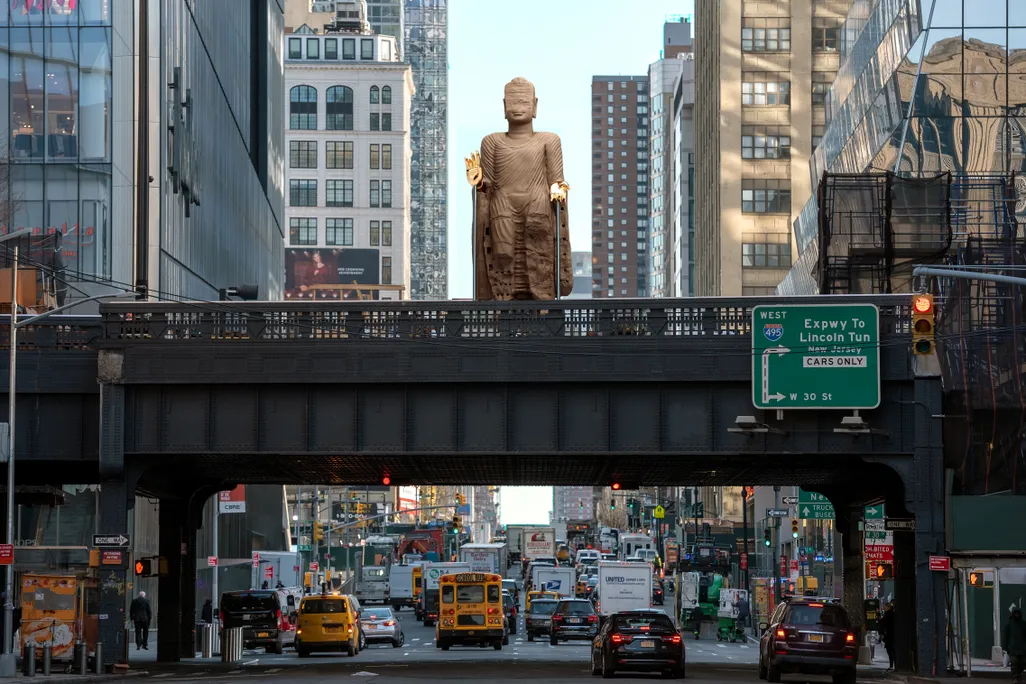Historian. Writer. Official. Polemicist. Poet. Prodigy. November 17th is the 1,000th anniversary of Song Dynasty scholar Sima Guang, born 1019 in what is today Henan Province. The Song Dynasty (960-1279) produced philosopher-officials at roughly the same rate the early 2000s produced rap-metal bands. But unlike Limp Bizkit, who nobody under 30 remembers today, Sima Guang’s writings still resonate a millennium later.
Sima Guang was born to a landowning family and claimed descent from the Sima Family, who rose to power in the Three Kingdoms era and established the Jin Dynasty in the 3rd century AD. Even as a child, he showed prodigious talent. He could recite ancient poems and works of history from a very young age.
He also famously saved one of his less gifted classmates from drowning after the classmate had fallen into a large vat. While the rest of the children ran about panicking, Sima Guang picked up a stone and broke the vat letting the water drain and saving his friend.

After passing the highest level of the imperial examinations at just 20, he began a long career serving in the Song bureaucracy. The Song was still in its first century of rule, but things were not going well. Groups like the Tanguts threatened the borders. None of the sons of Emperor Renzong [r. 1022-1063] had lived to maturity and so he adopted one of his nephews who would succeed him as Emperor Yingzong [r. 1063-1067]. Yingzong ruled for just four years and was an ineffectual man with serious daddy issues.* By the time the Shenzong Emperor, Yingzong’s son, took the throne in 1067, the Song court was in crisis mode.
Enter Wang Anshi. Wang was another brilliant Confucian scholar of the Song era who believed the only way forward was to make deep systemic changes in the way the Song government conducted its business. Wang Anshi proposed loan programs for farmers, state granaries, and a re-organization of society into ten-family units which would also be the basis of military conscription. Wang sought to expand the government and integrate the state with society to bring order out of chaos and to make the state stronger.
Related:
 Pebble Soup, Hairy Crab and Imperial Take-Out: What Did Song Dynasty People Actually Eat?This cookbook, five years in the making, offers up intriguing dishes with a side order of ancient historyArticle Jan 25, 2019
Pebble Soup, Hairy Crab and Imperial Take-Out: What Did Song Dynasty People Actually Eat?This cookbook, five years in the making, offers up intriguing dishes with a side order of ancient historyArticle Jan 25, 2019
By comparison, Sima Guang was more of a gradualist who felt that Song institutions, based on classical models, worked and that with the right people in the right positions, all would be fine. Sima Guang felt that Wang’s ideas of an activist state violated Confucian principles.
The debates between Sima Guang and Wang Anshi are some of the most famous in Chinese political history. They agreed on the problem, and both were deeply immersed in the classical tradition, but their understanding of that transition could not have been more different. They were also not above the occasional snarky Song-era subtweet.
“Those who detest you,” Sima Guang wrote to Wang, “repeat all sorts of slanders about you. I know that much of this is false. You may not be a great sage, but your fault lies in trying too hard.”
For his part, Wang played Elizabeth Warren to Sima’s Joe Biden, complaining that Sima had too much faith in existing institutions and favored only petty reforms which promised no real change.
In 1070, the court put Sima Guang in time out. He asked for leave and was granted permission to work on his magnum opus. The 資治通鑑 (zizhi tongjian) or Comprehensive Mirror to Aid in Government, published in 1084, chronicled the history of Chinese civilization from 403 BC down to 959, the year before the founding of the Song. The final work stretched over 294 volumes and contained nearly three million characters. It remains one of the greatest works of history ever compiled.
After the publication of his history and the death of the Emperor Shenzong, Sima Guang returned to court as Prime Minister under the new Emperor Zhezong (1085-1100) but died less than a year after taking office.
Sima Guang does not enjoy the reputation of scholarship and eruditeness that his contemporaries Su Shi (1037-1181) and Ouyang Xiu (1007-1072) do today. He’s not even the most famous historian named Sima (that would be Sima Qian who compiled his Records of the Grand Historian in the 1st century BC). But his legacy as a historian and researcher would have a powerful influence on future chronicles of Chinese history. A legacy that continues to survive 1,000 years later.
—-
*Yingzong wanted to venerate his biological father, but officials at court protested that he should honor his adopted father, the Emperor Renzong. Not the first or last time this kind of arrangement would lead to hurt feelings and a paralyzed court.

















